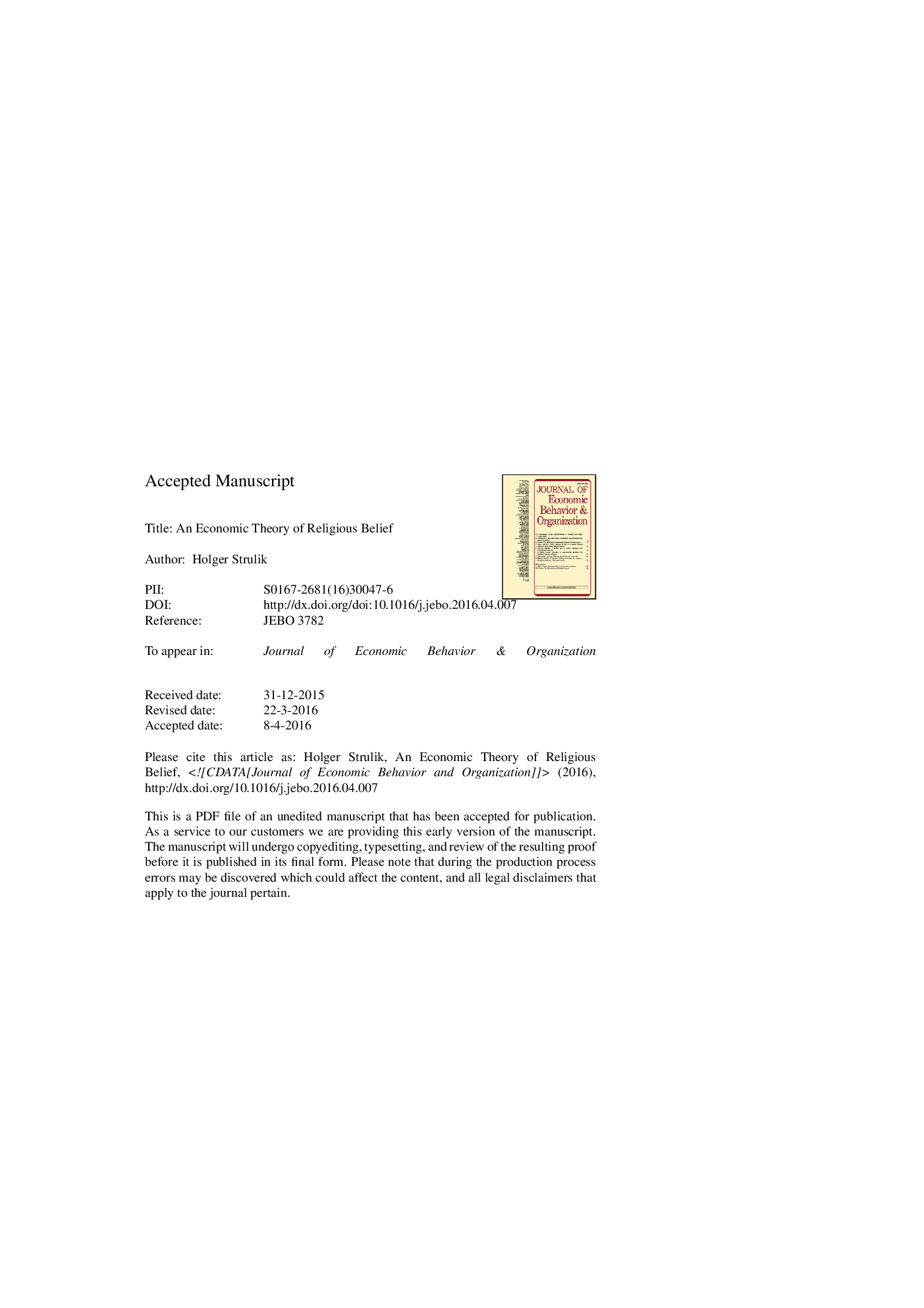| Article ID | Journal | Published Year | Pages | File Type |
|---|---|---|---|---|
| 7242769 | Journal of Economic Behavior & Organization | 2016 | 27 Pages |
Abstract
In this paper I consider how individuals allocate their time between church attendance (and other religious activities) and secular leisure activities. Moreover, individuals use a cognitive style, which is either intuitive-believing or reflective-analytical. I assume that the full benefit from religious activities is achieved by intuitive believers. The model predicts that, ceteris paribus, wealthier individuals and individuals with higher cognitive ability are more likely to abandon the intuitive-believing cognitive style. They may continue to attend church but do so less frequently than intuitive believers. In general equilibrium, there exists a locally stable steady state where believing and frequent church attendance is widespread across the social strata. A sufficiently large negative shock (e.g. the Enlightenment, repeal of Sunday shopping laws), however, initiates the gradual secularization of society.
Related Topics
Social Sciences and Humanities
Economics, Econometrics and Finance
Economics and Econometrics
Authors
Holger Strulik,
